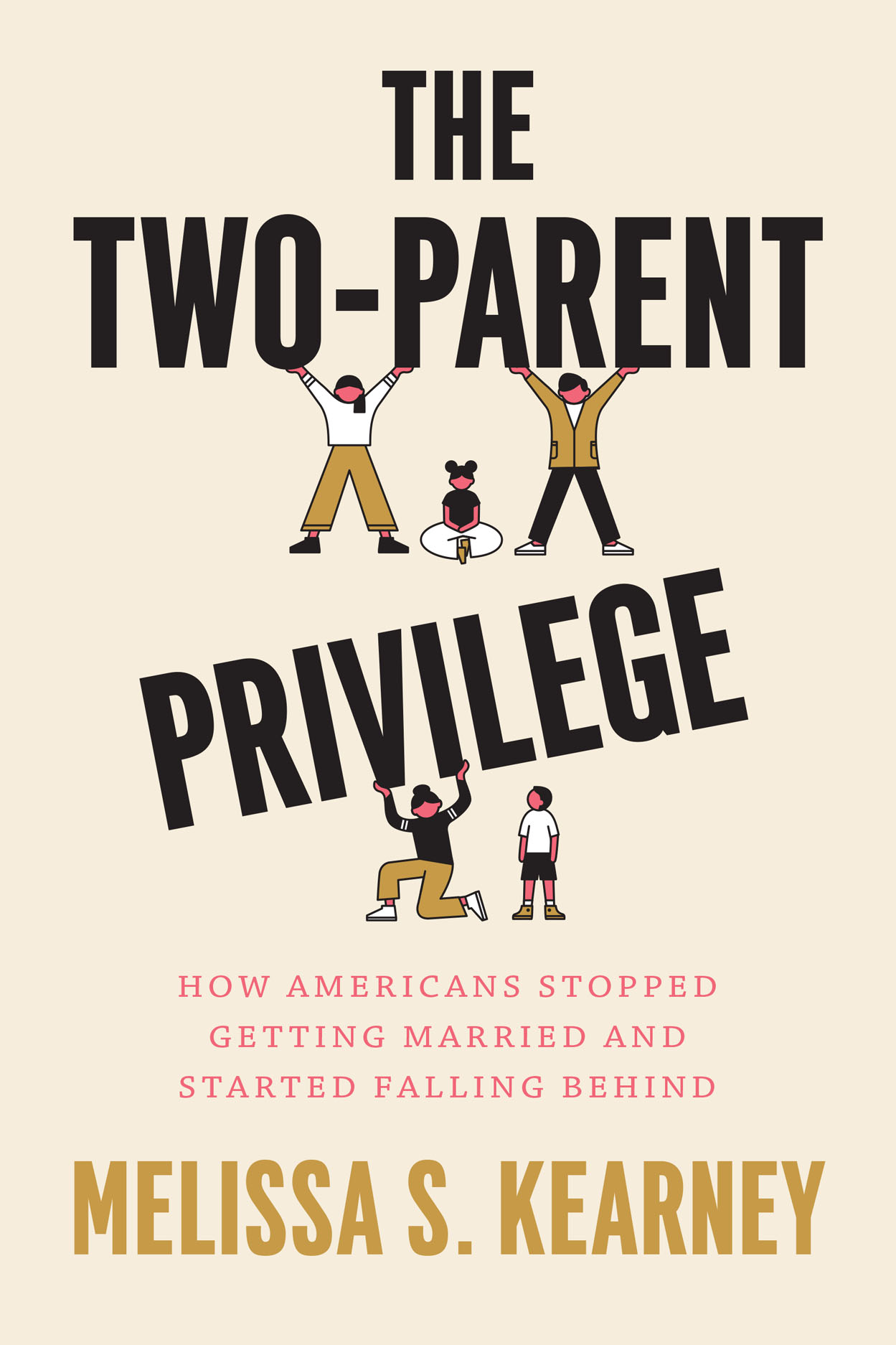The Two Parent Privilege: How Americans Stopped Getting Married and Started Falling Behind
Endorsements
“The failure to speak honestly about how the decline in marriage is affecting both children and the nation is an issue Kearney addresses forthrightly in this fabulous book. As usual, her analysis is trenchant, her common sense shines through, and her writing excels. This book may spark controversy, but in my view, it is right on the mark.”
Isabel Sawhill, senior fellow, Brookings Institution and author of "Generation Unbound: Drifting into Sex and Parenthood without Marriage"
“Kearney has written an extraordinary and deeply important book. Any conversation about the major economic and social issues facing America today should start here. Highly recommended.”
Tyler Cowen, George Mason University
“Kearney has written a courageous persuasive and profoundly important book. Our children will be better off, and our country will be stronger if her compelling analysis of the benefits of two-parent families is widely heard and acted on.”
Lawrence H. Summers, Harvard Kennedy School
“Among the many great advances that American women have made since 1960, single-parenthood is not one of them. It's brutally challenging for mothers. It’s epidemic among the families who can least afford it. And it deprives children of the economic and emotional resources that foster success in adulthood. This candid book by a superb scholar sets aside judgments and bromides to confront the urgent question of how America can do better by its children.”
David Autor, MIT

The University of Chicago Press, September 2023
The surprising story of how declining marriage rates are driving many of the country’s biggest economic problems. In The Two-Parent Privilege, Melissa S. Kearney makes a provocative, data-driven case for marriage by showing how the institution’s decline has led to a host of economic woes—problems that have fractured American society and rendered vulnerable populations even more vulnerable. Eschewing the religious and values-based arguments that have long dominated this conversation, Kearney shows how the greatest impacts of marriage are, in fact, economic: when two adults marry, their economic and household lives improve, offering a host of benefits not only for the married adults but for their children. Studies show that these effects are today starker, and more unevenly distributed, than ever before. Kearney examines the underlying causes of the marriage decline in the US and draws lessons for how the US can reverse this trend to ensure the country’s future prosperity.
Based on more than a decade of economic research, including her original work, Kearney shows that a household that includes two married parents—holding steady among upper-class adults, increasingly rare among most everyone else—functions as an economic vehicle that advantages some children over others. As these trends of marriage and class continue, the compounding effects on inequality and opportunity grow increasingly dire. Their effects include not just children’s behavioral and educational outcomes, but a surprisingly devastating effect on adult men, whose role in the workforce and society appears intractably damaged by the emerging economics of America’s new social norms.
For many, the two-parent home may be an old-fashioned symbol of the idyllic American dream. But The Two-Parent Privilege makes it clear that marriage, for all its challenges and faults, may be our best path to a more equitable future. By confronting the critical role that family makeup plays in shaping children’s lives and futures, Kearney offers a critical assessment of what a decline in marriage means for an economy and a society—and what we must do to change course.